Invested $2 billion in Neu, revamp’s paid off: Tata Digital CEO; VCs chase deep tech, climate tech, AI deals
Also in the letter:
■ Cloud kitchen Rebel Foods is going back offline
■ Exclusive ET Conversations with Sam Altman
■ More startups turn to Madras HC for relief against Google’s payment policy
Neu revamp has paid off: Tata Digital CEO Pratik Pal
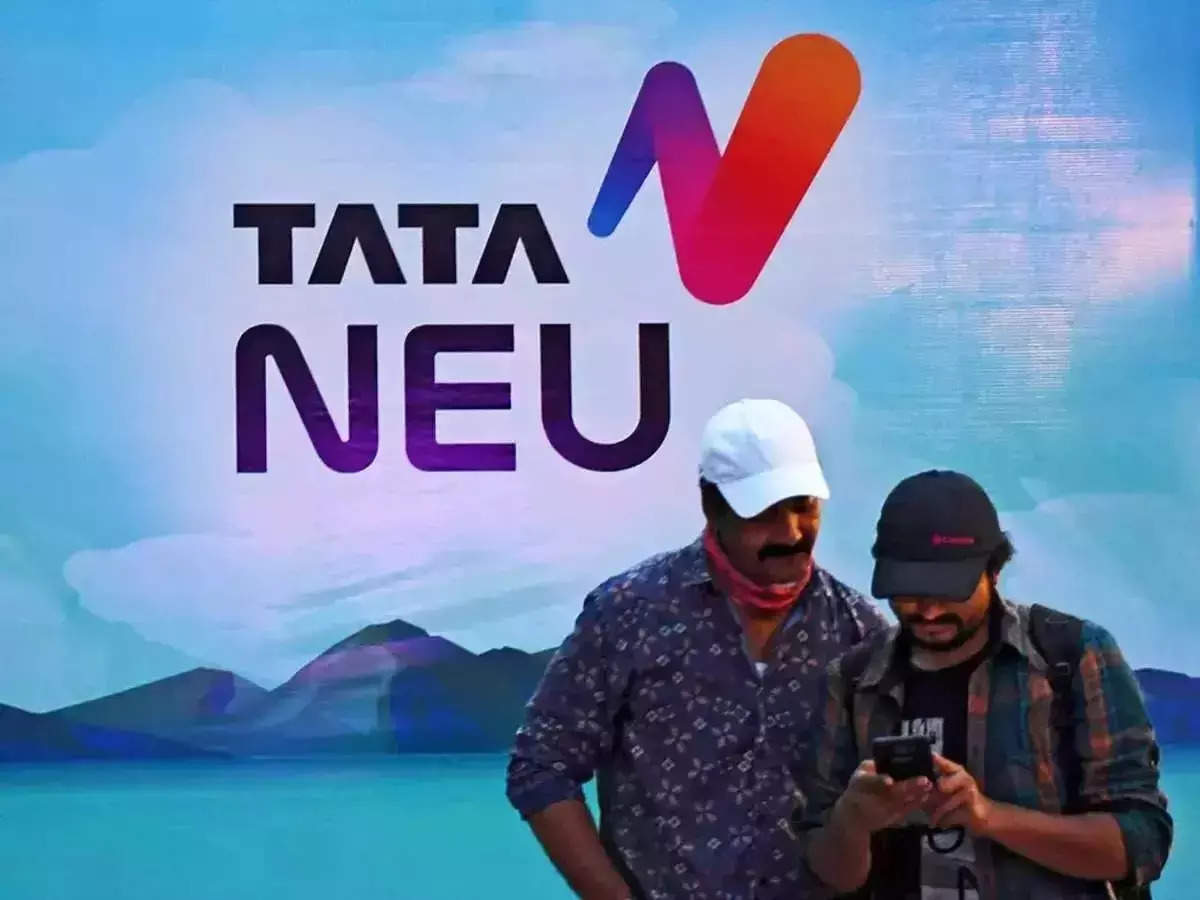
Tata Sons has invested more than $2 billion in super app Tata Neu, which has seen a surge in business after being relaunched in time for the just-concluded Indian Premier League, Tata Digital CEO Pratik Pal told ET in an interview.
Revamped Neu App: Pal, who was appointed Tata Digital CEO in 2019, said Tata Neu app was given a new design as well as improved navigation and payment systems, resulting in its best growth phase on all counts, including revenue.
Quote, unquote: “The app had over one million seconds of on-screen visibility through on-ground branding and around 110 million campaign reach with 13 million installs and 75 million visits during the IPL,” Pal said in his first interview as Tata Digital CEO. “We have reached 75 million NeuPass members and 60 million cumulative installs. Almost 60% of our customers are repeat customers while multi-category customers have increased from less than 10% a year back to over 25%.”
Eyeing profitability: “We are looking at profitable growth within a three-to-five-year period–revenue which is profitable is the focus,” Pal said. “We are continuously evaluating options for fundraising.”
Tata Digital’s FY22 loss widened to Rs 3,051 crore from Rs 536 crore in FY21. Total revenue from operations rose to Rs 15,979 crore from Rs 5,315 crore. The company is in talks with international luxury brands to be retailed directly through Tata Cliq, Pal said.
EV, AI, semicon emerge as hot favourites for VCs amid sluggish startup fundraising

Venture capital funds like Sequoia Capital India, Lightspeed India, Matrix Partners India, Athera Venture Partners and Accel Partners are moving the spotlight away from cash-guzzling consumer tech sectors and are deploying early-stage capital in emerging sectors such as electric mobility, artificial intelligence, deep tech, climate-tech and semiconductors.
Driving the news: Investors told ETtech that beyond the funding winter, the increased adoption of environment-friendly technologies, policy push from the government in areas ranging from domestic manufacturing, emissions monitoring and renewables is driving investor interest in these emerging sectors.
By the numbers: Investments in the three sectors – deep tech (including AI startups) climate tech and semiconductors – have totalled $1.58 billion in 2023, in five months itself, according to data from Tracxn.
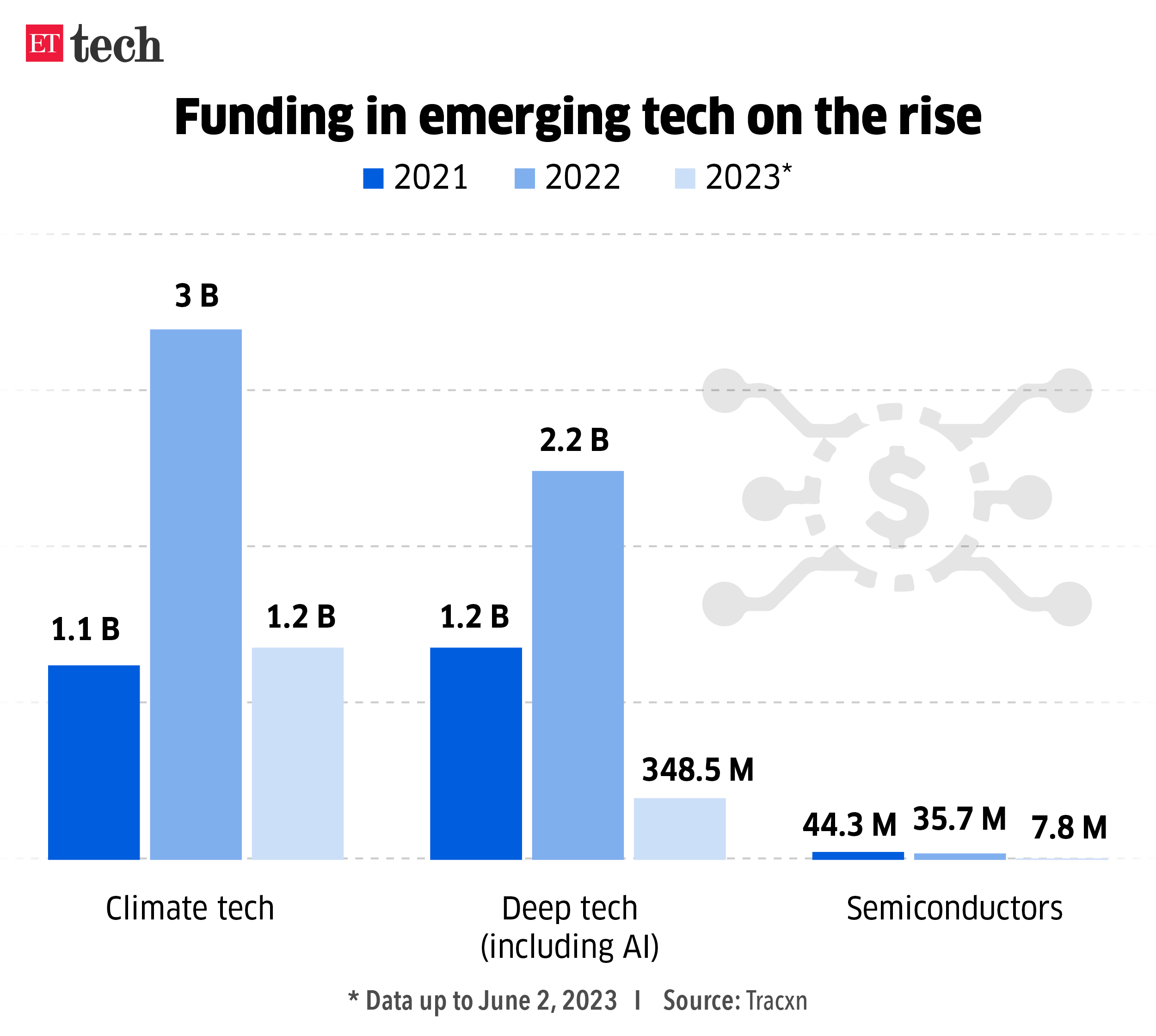
Also read: Deep-tech VCs up India focus as generative AI reshapes tech
Quote, unquote: “We are aggressively looking at this theme from our new fund and the reasons why this is becoming more real today versus 3-5 years ago is that talent, capital and government push – all these three factors are coming together to make it happen,” Tarun Davda, partner and managing director at Matrix Partners India told ETtech.
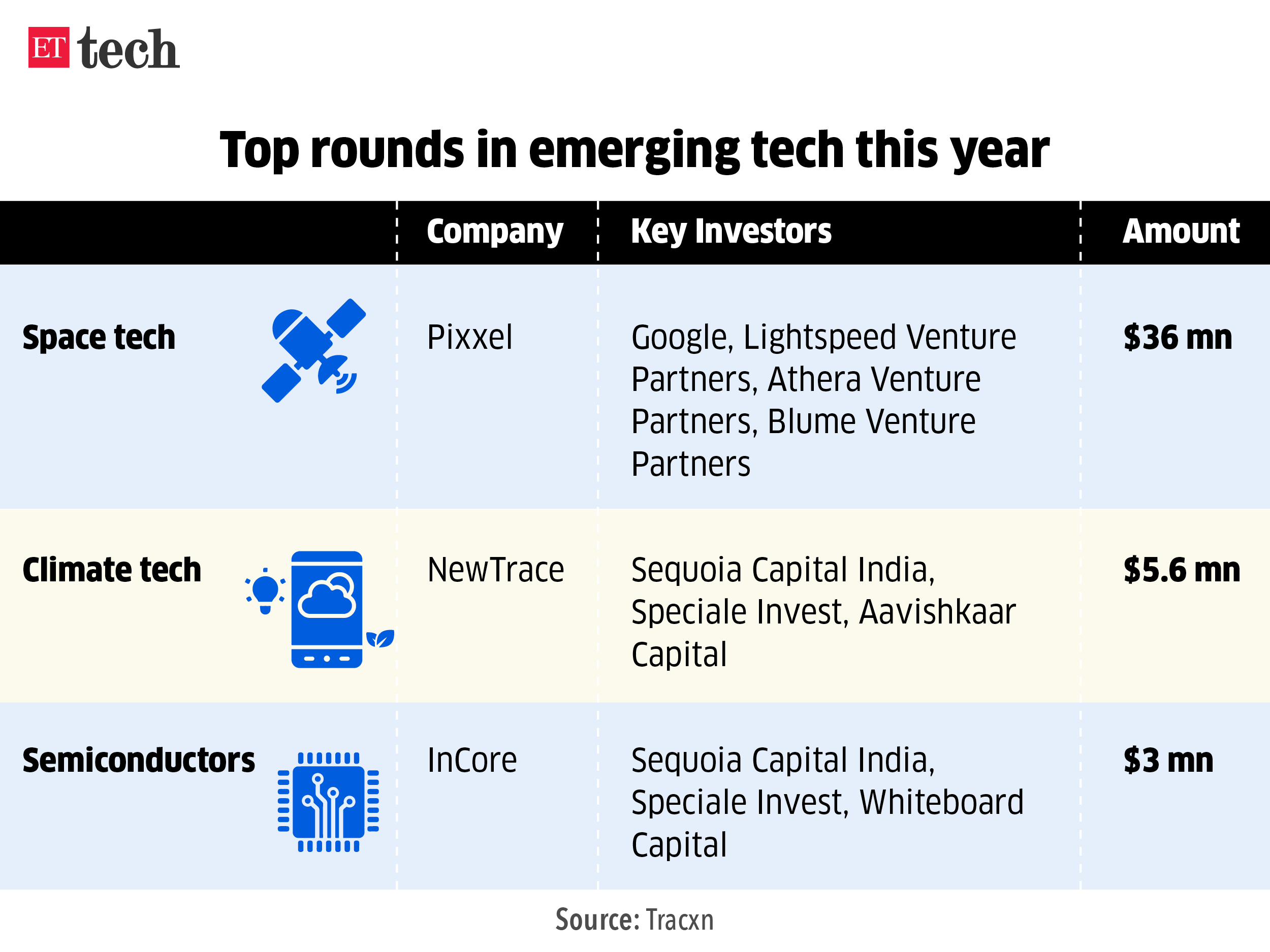
The bottom line: Even as these sectors demand patient capital, investors see two crucial ingredients in climate-tech and deep tech businesses – a moat with strong intellectual property and a clear line of revenue once commercialisation begins.
ET Conversations: Opening the AI chat window with Sam Altman
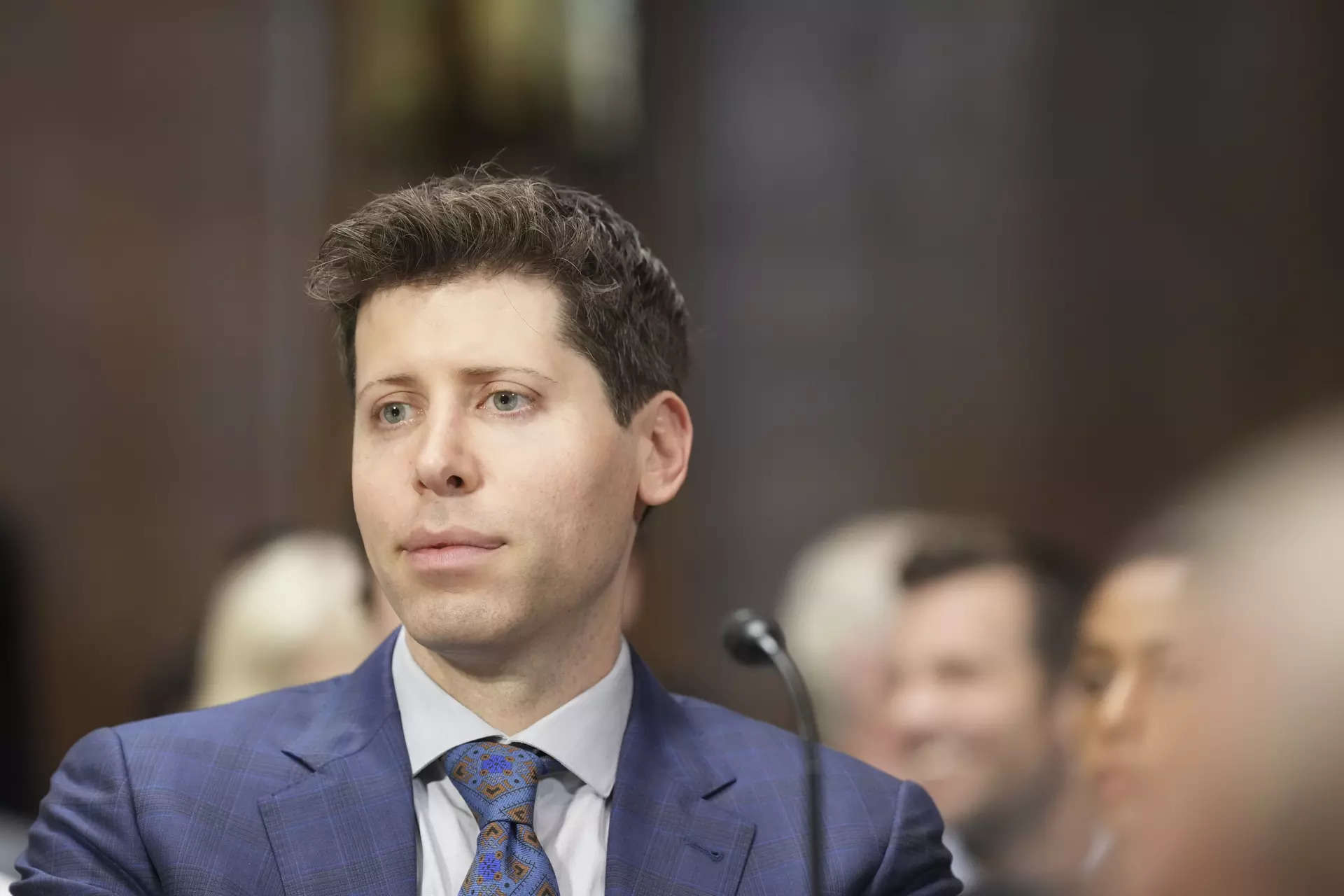
OpenAI and ChatGPT have become buzzwords globally, along with the man behind it all, Sam Altman. To discuss this, and more, The Economic Times will host Altman, CEO of OpenAI, the company behind the buzzy AI chatbot ChatGPT, for a fireside chat on June 7 in New Delhi.
What are the details: Altman will be in conversation with Satyan Gajwani, vice chairman of Times Internet Ltd., discussing various themes, including how AI affects countries such as India in terms of jobs and talent evolution. Also, how best to capitalise on the technology.
Altman on AI regulation: We will also talk about regulations around AI and what’s next? While testifying before members of a Senate subcommittee recently in Washington DC, Altman had said, “I think if this technology goes wrong, it can go quite wrong. And we want to be vocal about that… We want to work with the government to prevent that from happening.”
Watch ET Conversations with OpenAI CEO Sam Altman by logging in here.
ETtech Deep Dive: why cloud kitchen Rebel Foods is going back offline to build food courts

(L-R) Sagar Kochhar and Ankush Grover cofounders, Rebel Foods and Jaydeep Barman, CEO and cofounder, Rebel Foods, in Mumbai
Rebel Foods, the only unicorn in the cloud kitchen space, is expanding its menu and broadening its multi-brand food courts in the offline space after the delivery business slowed down post-pandemic.
What’s the matter? Cloud kitchen startups struggled when dine-in resumed. ET had reported how the industry went through a course correction after 2021.
However, Rebel’s multi-brand portfolio has allowed it to adapt to the volatility in the delivery market during and post-covid. According to its founders, the company crossed pre-Covid numbers in December 2020 and has grown at over 25% on the same kitchen sales growth basis.
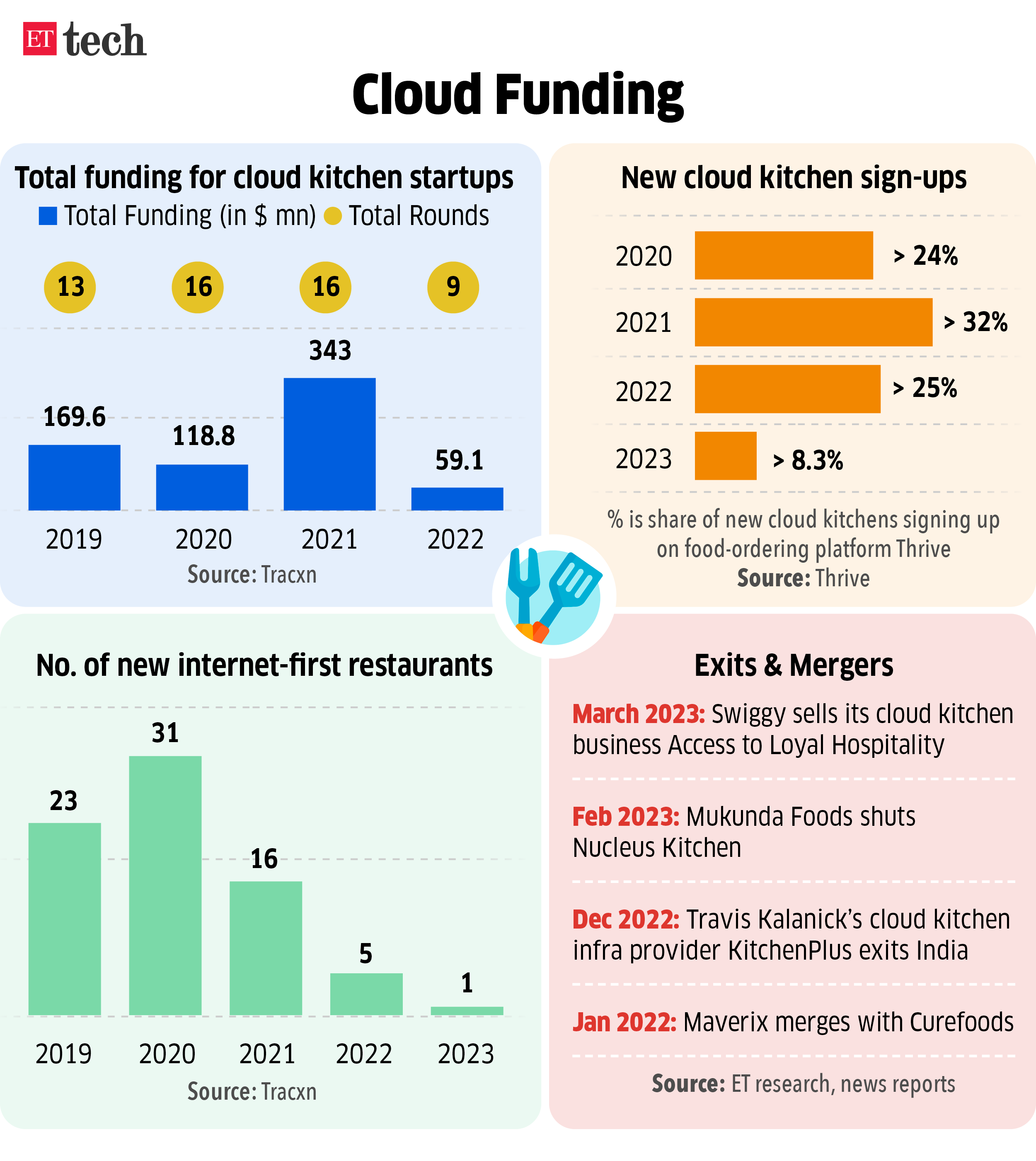
Quote, unquote: Rebel Foods, became operationally profitable in the first quarter of 2023, cofounder and CEO Jaydeep Barman told ET. “We have been focused on unit economics and we continue to focus there. Over the next 5-10 years, we will have a very profitable and sustainable franchise. That’s what we are after and we continue to focus on,” he said.
Background: Barman founded Indian wraps chain Faasos—the forerunner of Rebel Foods—with his friend Kallol Banerjee in 2011. The company shifted gears in 2014—just as internet ordering and food delivery was gaining momentum in the country. And India’s first cloud kitchen startup was born.
Tweet of the day
More startups turn to the Madras HC for relief against Google’s payment policy

Several startups including Unacademy, Kuku FM, TrulyMadly and QuackQuack have moved the Madras High Court challenging Google’s notice asking them to either adopt the company’s mandated billing route or risk being removed from its Play Store, people aware of the development said.
Driving the news: These companies join the likes of Matrimony.com and Shaadi.com which have already approached the high court challenging Google’s billing policies and seeking relief. Matrimony.com chief executive Murugavel Janakiraman told ET that Google has been reaching out to startups “threatening” to delist their apps if they do not comply with its payments policy.

Google’s notice: “Your app uses a non-Google Play billing system to accept payment for access to in-app features or services including any app functionality, digital content or goods (collectively ‘in app purchases’). Your app may be removed from our distribution, limited on Google Play if you do not resolve this issue,” one of the emails to startups, reviewed by ET, stated.
Other Top Stories From Our Reporters
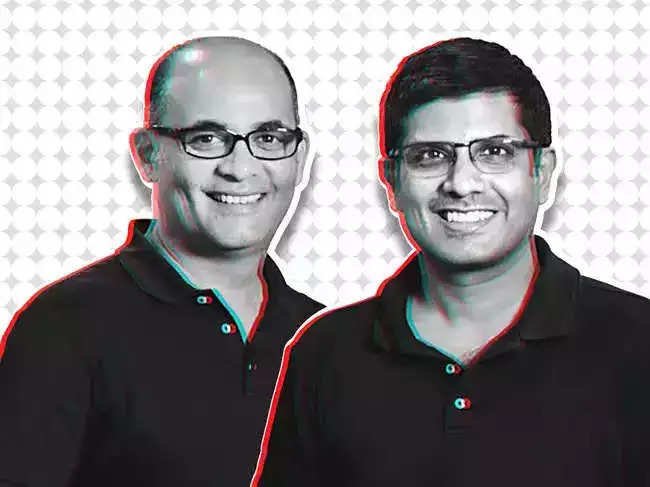
PhonePe cofounders Sameer Nigam & Rahul Chari
Walmart shareholding in PhonePe drops to 85%: Retail giant Walmart’s shareholding in decacorn fintech firm PhonePe has dropped to 85% from 89% following its ongoing fundraise of $1 billion, the US based firm said. PhonePe has now raised a total of $850 million of primary capital in the current round till the end of May.
A global crisis drives opportunities for Indian IT industry: Executives are of the view that demand will increase through the current fiscal year as enterprises will double down on value realisation with their existing providers with a higher margin for offshoring contracts.
The Indian cloud market evolves and takes many shapes: Enterprises are evaluating whether a hybrid or multi-cloud approach is better suited for their needs, said industry experts, as most organisations realise that cloud adoption doesn’t necessarily translate into cost savings.
Global Picks We Are Reading
How AI protects (and attacks) your inbox (Wired)
Virtual reality start-ups pin hopes on Apple to lure back funding (Financial Times)
Fans in China used AI to deepfake a pop star’s return to music (Rest of World)
For all the latest Technology News Click Here
For the latest news and updates, follow us on Google News.

